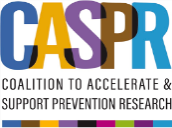CASPR OVERVIEW: “Amidst a shrinking envelope of global resources for the overall HIV response, the HIV prevention field is challenged with scaling up proven prevention options while sustaining momentum in research and development (R&D) of next-generation HIV prevention products. People need a rich array of effective choices that work for their life circumstances, and urgently.
But as we’ve learned from past experience, once products are shown to work, programs, policies and funding must match the needs of affected communities and overcome the barriers that have blocked or slowed access in the past, while at the same time, accelerating R&D of the prevention pipeline. CASPR’s many initiatives take on these challenges.”
Stakeholder engagement is encouraged by numerous ethics guidelines — UNAIDS-AVAC GPP (2011), CIOMS (2016), and UNAIDS (2021). Also, leading frameworks such as Emanuel et al. (2008) recommend that researchers engage community stakeholders as well as policymakers to avoid exploitative studies. Our research aimed to explore perceptions of what’s working and what needs improvement regarding stakeholder engagement, and the ethics review of engagement. We conducted 28 interviews with researchers, REC members, advocates and community stakeholders. These stakeholders helped to highlight some of the beneficial outcomes of engagement, as they saw them. We reported on some of what was shared in a paper we called the “3 Ps” – emPowerment, Partnership and Protection. Firstly, stakeholder engagement in HIV prevention was perceived to empower stakeholders through the engagement process by ‘evening the playing field’, ‘transforming power relations’, ensuring ‘mutual building capacity’ and enabling shared decision making. Secondly, stakeholder engagement was perceived to promote the development and maintenance of partnerships where engagement strives to build equitable relationships with stakeholders by ‘building trust’, ‘collaborating to achieve shared goals’, ensuring ‘co-ownership’ of the research and ensuring mutual benefit and respect amongst stakeholders. Lastly, stakeholder engagement was perceived to offer protections to clinical trial participants, communities, and future beneficiaries (the latter through better science). Many of the engagement benefits expressed by our interview participants corresponded with those beneficial outcomes envisaged by leading ethics guidelines.
We recommended that:
● Researchers should be explicit about the engagement outcomes they are trying to achieve which ideally should be grounded in leading ethics guidelines; that outcomes should be discussed with stakeholders during the planning of engagement; that researchers should determine an ultimate ethical goal (e.g., demonstrating social value), followed by identifying strategies to achieve specific short-term outcomes (e.g., “increased understanding”) and intermediate and long-term outcomes (e.g., “shared decision-making). This may help researchers determine if their engagement activities achieve beneficial outcomes such as the 3Ps.
● Research Ethics Committees should ask to see descriptions of the engagement plans to assess whether engagement plans set out beneficial outcomes and associated activities; that RECs should be able to assess whether researchers have considered the goals of engagement in ethical terms; that RECs can inquire how researchers are working toward collaborative relationships with key stakeholders to improve the science and ethics of clinical trials as well as empower stakeholders where relevant and that RECs use concise tools/resources (that are conceptually and empirically informed) to review stakeholder engagement.
● Advocates - from civil society groups who amplify community voices - should act as liaisons in building partnerships between researchers and community stakeholders, and others; should work to ensure outcomes of engagement have been discussed, understood and accepted by all as they are well placed to inquire about how strategies will achieve desired outcomes and to add their expertise to such efforts; should help to monitor whether stakeholder engagement achieves beneficial outcomes in practice; and should read international guidelines with a careful eye attuned to whether outcomes are helpfully stated, and lobby for improved guidance where necessary.
Our work has helped to showcase the pathways via which engagement is perceived to have beneficial outcomes. We would value interacting with colleagues interested in stakeholder engagement.
This research was funded by the US President’s Emergency Plan for AIDS Relief (PEPFAR) and the US Agency for International Development (USAID). * Cooperative Agreement No. AID-OAA-A-16-00031 - Coalition to Accelerate and Support Prevention Research (CASPR).
Key Resources
● Wilkinson, A., Slack, C., Thabethe, S., & Salzwedel, J. (2022). “It’s Almost as if Stakeholder Engagement is the Annoying ‘Have-to-do’…”: Can Ethics Review Help Address the “3 Ts” of Tokenism, Toxicity, and Tailoring in Stakeholder Engagement? Journal of Empirical Research on Human Research Ethics, 17(3). https://doi.org/10.1177/15562646221078415
● Wilkinson, A., Slack, C., Crews, C., Singh, N., Salzwedel, J., & Wassenaar, D. (2021). How can Research Ethics Committees help to strengthen stakeholder engagement in health research in South Africa? An evaluation of REC documents. South African Journal of Bioethics and Law, 14(1), 6-10. doi:10.7196/SAJBL.2021.v14i1.698
● Slack, C., Wilkinson, A., Salzwedel, J., & Ndebele, P. (2018). Strengthening stakeholder engagement through ethics review in biomedical HIV prevention trials: Opportunities and complexities. Journal of The International AIDS Society. 21(S7):e25172
● Strengthening Engagement Through Ethics Review (2020). See https://engage.avac.org

